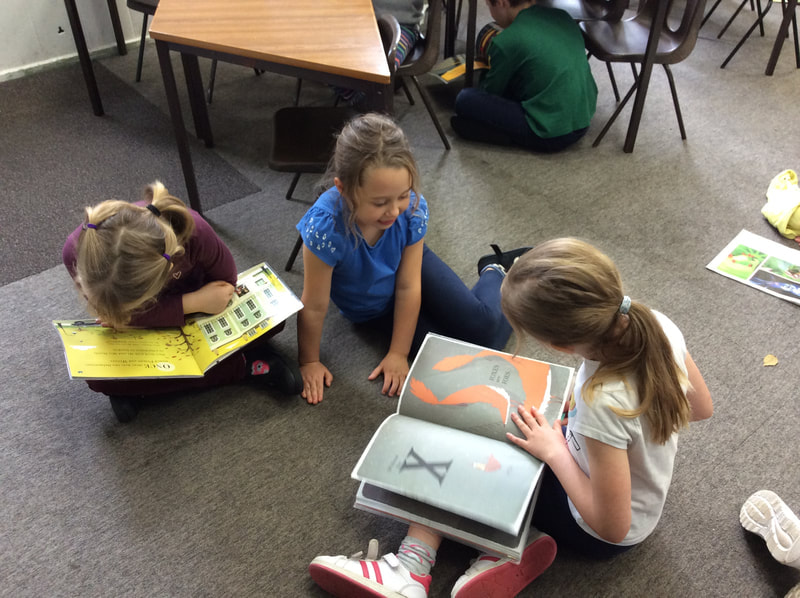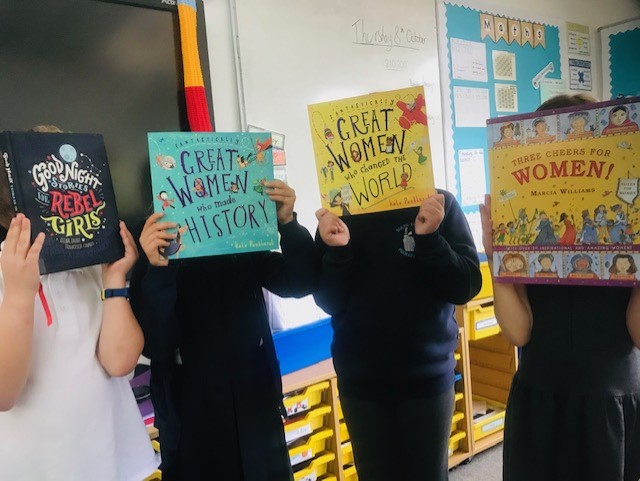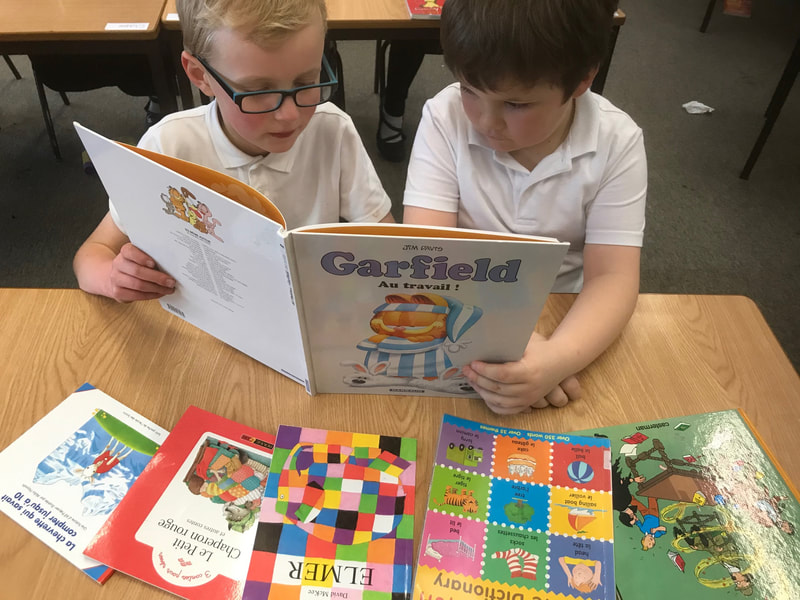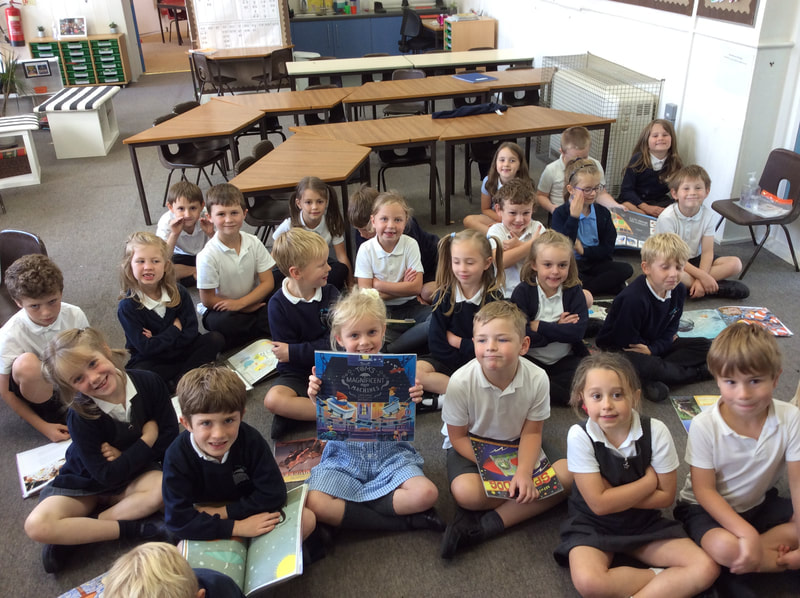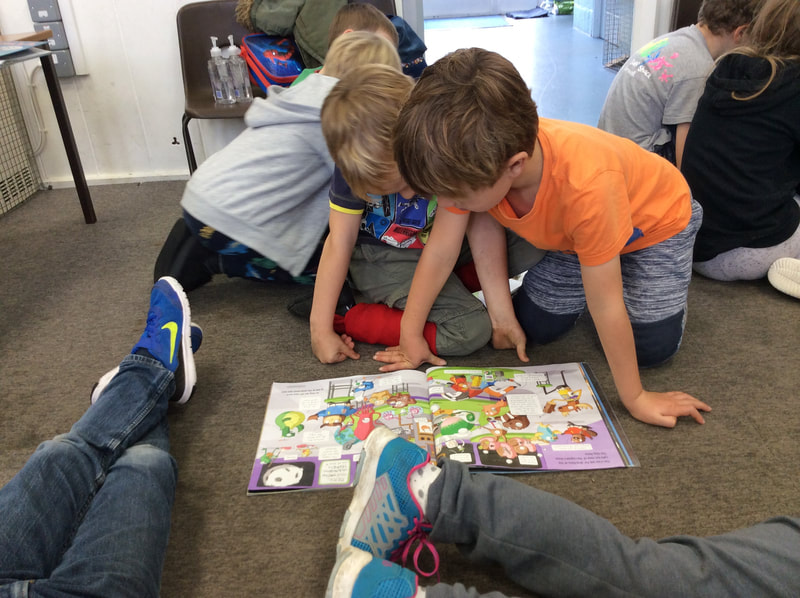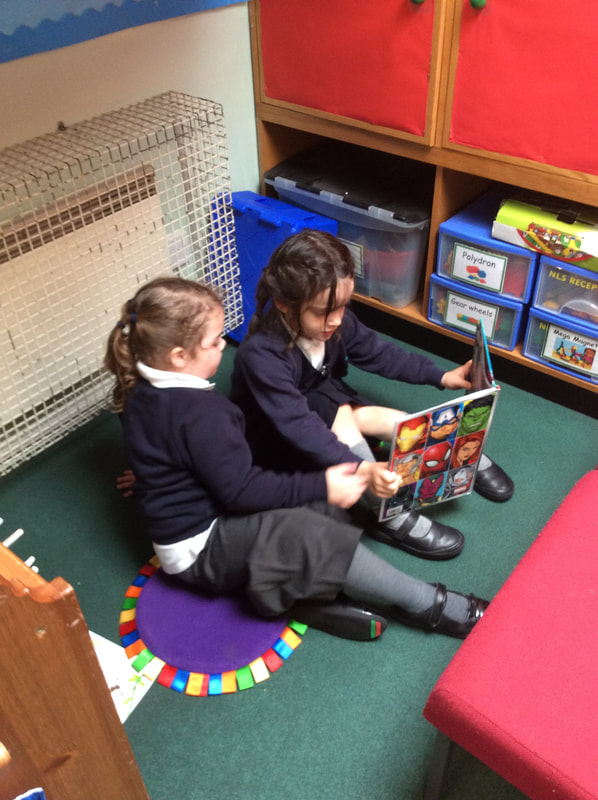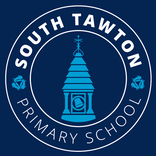Intent
At South Tawton Primary School, we will provide pupils with a high-quality education in English. We will teach pupils to speak, read and write fluently so that they can communicate their ideas and emotions effectively. With regards to reading, children will be exposed to a wide range of texts to develop their knowledge of themselves and the world in which they live. Phonics will be used as a tool to develop an appreciation and love of reading through teaching fluency. Children will be challenged in their thinking through comprehension and their immersion in the wider curriculum. It is our intention to ensure that, by the end of their primary education, all pupils are able to read fluently, and with confidence, in any subject in their forthcoming secondary education.
Aims
The aim for English at South Tawton Primary School is to promote high standards of language and literacy by equipping pupils with a strong command of the spoken and written word, and to develop their love of literature through widespread reading for enjoyment.
The national curriculum for reading aims to ensure that all pupils:
- Read easily, fluently and with good understanding;
- Develop the habit of reading widely and often, for both pleasure and information;
- Acquire a wide vocabulary, an understanding of grammar and knowledge of linguistic conventions for reading, writing and spoken language;
- Appreciate our rich and varied literary heritage.
Implementation
The systematic teaching of phonics has a high priority throughout Foundation Stage and Key Stage 1. At South Tawton Primary School, we use a synthetic phonics programme called ‘Read Write Inc’ produced by Ruth Miskin. Our staff teach learners the relationship between sounds and the written spelling patterns, or graphemes, which represent them. All children in Reception, KS1 and, where necessary, KS2 have daily phonics sessions in small ability groups where they participate in speaking, listening, spelling and reading activities that are matched to their current needs. The teachers draw upon observations and continuous assessment to ensure children are stretched and challenged and to identify children who may need additional support. Timely intervention is planned for those children who are working below expected levels as soon as their needs are identified. We recognise that systematic, high quality phonics teaching is essential, but additional skills and opportunities are needed for children to achieve the goal of being a well-rounded reader, namely comprehension.
When children have completed the Read, Write, Inc phonics programme, reading is developed during guided reading, using high quality texts and focused skill teaching. Strong links are made between reading and writing. Children read and enjoy high quality fiction and non-fiction texts, which (where possible) are linked to their topics across the curriculum. Children also continue to develop their reading fluency skills, building upon their phonics knowledge and skills.
All classes are exposed to a daily class reader, for pleasure, to excite and engage the children, and to expose them to new and varied vocabulary. All books shared with children are age appropriate and matched to the level of the class/individual. Children working on the Read Write Inc. programme take home a ‘book bag book’ matched directly to their current phonics level; they are also encouraged to choose an additional book to share with their family at home.
Impact
Through the teaching of systematic phonics, our aim is for children to become fluent and confident word readers by the end of KS1. As a Year 6 reader, transitioning into secondary school, we aspire that children are fluent, confident and able readers, who can access a range of texts for pleasure and enjoyment, as well as use their reading skills to unlock learning and all areas of the curriculum. We firmly believe that reading is the key to all learning and so the impact of our reading curriculum goes beyond the results of the statutory assessments.
The systematic teaching of phonics has a high priority throughout Foundation Stage and Key Stage 1. At South Tawton Primary School, we use a synthetic phonics programme called ‘Read Write Inc’ produced by Ruth Miskin. Our staff teach learners the relationship between sounds and the written spelling patterns, or graphemes, which represent them. All children in Reception, KS1 and, where necessary, KS2 have daily phonics sessions in small ability groups where they participate in speaking, listening, spelling and reading activities that are matched to their current needs. The teachers draw upon observations and continuous assessment to ensure children are stretched and challenged and to identify children who may need additional support. Timely intervention is planned for those children who are working below expected levels as soon as their needs are identified. We recognise that systematic, high quality phonics teaching is essential, but additional skills and opportunities are needed for children to achieve the goal of being a well-rounded reader, namely comprehension.
When children have completed the Read, Write, Inc phonics programme, reading is developed during guided reading, using high quality texts and focused skill teaching. Strong links are made between reading and writing. Children read and enjoy high quality fiction and non-fiction texts, which (where possible) are linked to their topics across the curriculum. Children also continue to develop their reading fluency skills, building upon their phonics knowledge and skills.
All classes are exposed to a daily class reader, for pleasure, to excite and engage the children, and to expose them to new and varied vocabulary. All books shared with children are age appropriate and matched to the level of the class/individual. Children working on the Read Write Inc. programme take home a ‘book bag book’ matched directly to their current phonics level; they are also encouraged to choose an additional book to share with their family at home.
Impact
Through the teaching of systematic phonics, our aim is for children to become fluent and confident word readers by the end of KS1. As a Year 6 reader, transitioning into secondary school, we aspire that children are fluent, confident and able readers, who can access a range of texts for pleasure and enjoyment, as well as use their reading skills to unlock learning and all areas of the curriculum. We firmly believe that reading is the key to all learning and so the impact of our reading curriculum goes beyond the results of the statutory assessments.

